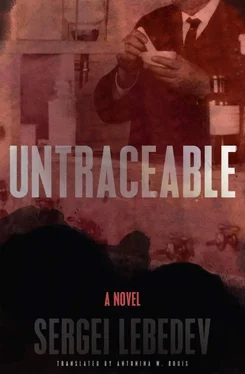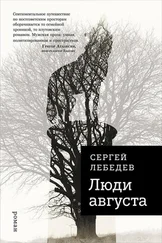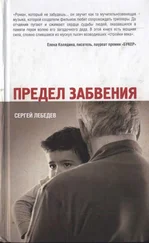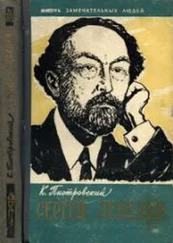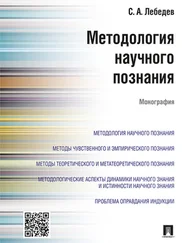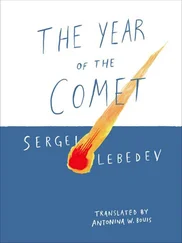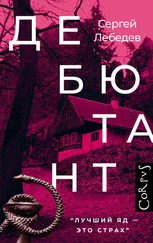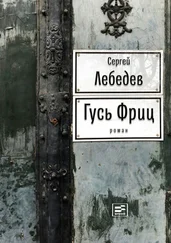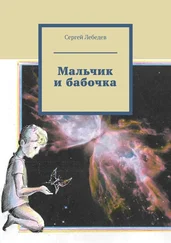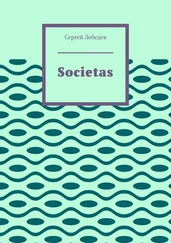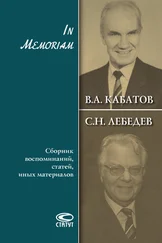Сергей Лебедев - Untraceable
Здесь есть возможность читать онлайн «Сергей Лебедев - Untraceable» весь текст электронной книги совершенно бесплатно (целиком полную версию без сокращений). В некоторых случаях можно слушать аудио, скачать через торрент в формате fb2 и присутствует краткое содержание. Город: New York, Год выпуска: 2021, ISBN: 2021, Издательство: New Vessel Press, Жанр: Современная проза, на английском языке. Описание произведения, (предисловие) а так же отзывы посетителей доступны на портале библиотеки ЛибКат.
- Название:Untraceable
- Автор:
- Издательство:New Vessel Press
- Жанр:
- Год:2021
- Город:New York
- ISBN:978-1-939931-90-0
- Рейтинг книги:3 / 5. Голосов: 1
-
Избранное:Добавить в избранное
- Отзывы:
-
Ваша оценка:
- 60
- 1
- 2
- 3
- 4
- 5
Untraceable: краткое содержание, описание и аннотация
Предлагаем к чтению аннотацию, описание, краткое содержание или предисловие (зависит от того, что написал сам автор книги «Untraceable»). Если вы не нашли необходимую информацию о книге — напишите в комментариях, мы постараемся отыскать её.
Untraceable — читать онлайн бесплатно полную книгу (весь текст) целиком
Ниже представлен текст книги, разбитый по страницам. Система сохранения места последней прочитанной страницы, позволяет с удобством читать онлайн бесплатно книгу «Untraceable», без необходимости каждый раз заново искать на чём Вы остановились. Поставьте закладку, и сможете в любой момент перейти на страницу, на которой закончили чтение.
Интервал:
Закладка:
He had created such twins, to use them in the hunt for people.
Now they were hunting him.
Vyrin could not prove that. He could only detect it, feel it with the victim’s sixth sense. He knew nothing for sure, their service did not share its secrets, even within itself. He merely guessed that there was—could have been—one more unspoken order, the shadow of that headed: “On Measures in Connection with Treason…” The order was also a sentence. Back in the 1990s, Vyrin had given evidence to the police, who were investigating the commercial ties of his former colleagues with fake businesses transferring and laundering money. Back then it seemed harmless. Now it did not.
Psychologists had warned him that he might experience an irrational urge to go to the embassy and turn himself in. Or that he would take ridiculous risks, stupidly overlook the rules of conspiracy, subconsciously try to be exposed.
He had never felt anything like that.
But he did not tell the psychologists that he had a superstitious fear of something quite different: a bad coincidence, some insignificant stray incident, a fatal trifle, an absurdity. Like what happened last month: Vyrin received an official notification in the mail that he had been selected for jury duty.
A lottery, a random hit: a computer program selected him out of the three hundred thousand residents of the city. You could even say it was a good sign, confirmation that his faked identity did not arouse any suspicions among the uninformed bureaucrats and that he was treated like everyone else.
But he tensed up. As if he felt an evil gaze, foreign, seeking contact. They had promised him from the start that his new name would not appear in official registries or on lists. He had to call the officer handling him, who apologized and promised they would get rid of his name; allegedly, the court system had upgraded its program and compatible databases, and that’s how the error occurred.
Vyrin insisted that they use the ordinary, legal way and get an excuse for health reasons. That way there would be no electronic trace that could even obliquely indicate Mr. Mihalski’s special status. The officer merely chuckled politely.
His former handler still remembered the Cold War. The Wall. He had recently retired. The new guy was just over thirty. When Vyrin defected, the officer was in kindergarten. He probably considered Vyrin superfluous detritus, an old man’s junk forgotten in the attic.
He must think the boredom is getting to me, Vyrin thought.
His immediate response was to leave. But he changed his mind right away: if they were watching him, a hasty departure could give him away. So Vyrin lived a month adhering strictly, even excessively, to his routine behavior as an unsociable bachelor pensioner.
The gnawing anxiety passed; only the usual and tiresome ailments remained.
August had just begun. In the mornings, the farmers’ market was filled with the golden buzz of wasps hovering over glistening mounds of burgundy cherries, used in a famous local cake.
The cherries were slightly fermented. In all his travels he had never seen fruit like this, Goliaths among cherries, so large they were disproportionate, ungainly giants. Vyrin bought some seemingly flawless sweet cherries, but could not eat the whole bag: there was too little flavor, dead fruit flesh; it was like kissing unresponsive lips in a narcotic sleep.
He decided to take his favorite long walk, a reward for the many weeks indoors. Starting at the river that divided the city in two, full and murky after the rains; its crazed waters, flying, turning to foam, then becoming a wave; repeatedly changing its nature every second. Vyrin went into the hills, the forest, dark even on a sunny summer day.
He went up the street that led away from the main square, past a house beloved by sightseers with a dormer roof projecting over the street and under which stood an outlandish statue: a mustached Janissary in a painted vest, scimitar in his right hand, shield in his left; it was a reminder of the ruthless Turkish siege, the former threat from the East.
Vyrin no longer looked at the city as a tourist. He was not amused by the dancing figures in the church clock, or the steep funicular, or the tunnels through the castle mountain. However, this lone assassin with two moons on his shield, crescents turned away from each other, like reverse parentheses—a divinity of a dangerous moment, an evil hour—was not a mere amusement for Vyrin. He felt that if a killer were to come for his soul, the Janissary would warn him, give him a sign.
Tourists crowded around the house with the Janissary. He heard the words of his native tongue spoken fluently—after his isolation they sounded so unexpected and piercing, as if they contained a hidden meaning unknown to the speaker himself. Vyrin smoothly crossed the street and looked, without turning his head, at the reflection in a store window: nothing special, a Sunday excursion.
Blocks of individual houses. The botanical gardens on the outskirts. The windows of the greenhouses were fogged from inside, as if the alien tropical vegetation had adopted the predatory ways of reptiles and insects and was exhaling hotly, oozing toxic sweat, gathering strength to escape outside.
Vyrin reached the dirt road, zigzagging up the valley slopes.
The forest was fabulously immense. It grew along the swollen slopes of the limestone ridge, falling steeply into the misty undergrowth, the green loam of ferns and mosses. Distances were lost in it, and the road looped sharply, with the sun shining sometimes from the right, then from the left. Just when you thought that you had lost your way, the cathedral bell rang out rich and clear in the distance; actually, it was the resonant response of the bell’s brass—edifying, encouraging, and dissipating all anxiety—that Vyrin liked about this path through old firs, reminiscent of the forests of his childhood.
He walked, feeling his body fill with blessed tiredness. Vyrin knew every root, every hole on this path, and he looked forward to seeing the pasture on the left, fenced by rowan trees—the berries would be ripe in color by now—and then he would encounter the sweet, gentle chimney smoke from the farm. The walk both tired and invigorated him; his recent fears seemed silly. I guess I really am old, he thought. I’ve become neurotically fearful.
He could see the cathedral from the last turn. It stood on a stone outcropping that divided the top of the valley. The yellow façade, framed by two bell towers, continued upward from the vertical plane of the cliff. This church was much larger than the cathedral in town. It had been built here, in the mountains, by the pass, on an ancient pilgrimage path, its majestic vaults signifying the depth and significance of someone’s epiphany, an acquisition of faith that took place in the silent solitude of the outcropping.
Beyond the cathedral’s back wall, in the shade of chestnut trees, lay a small outdoor restaurant with good food. The regular waiters recognized him—or pretended to. They did not try to chat but smiled respectfully. Here he fully felt he was Mr. Mihalski; he took that pleasant and exciting sense of connection, the merging of true and invented identities, as a special gift which he brought back home in the trolley that traveled along the bottom of the valley.
Today the courtyard was full: a summer weekend. There was only one free table, at the edge behind a wide-branching tree. Next to the sandbox and swings. That meant frenzied children would run around, making noise. Vyrin preferred sitting among people dining sedately, behind strangers, in the buzz of calm conversation, the clinking of knives and forks, where it is hard to eavesdrop, photograph, or take aim.
Vyrin looked at the diners: Was anyone about to leave? No, they were all relaxed, in a merry lazy mood. The brunette at the nearby table had a provocative drop of crème brûlée on her upper lip. She didn’t wipe it away or lick it off, knowing how seductive and sexy it looked. She wore a dark metal necklace resembling a dog collar—a sign of exotic passions, kinky torment insolently displayed in a restaurant by a church.
Читать дальшеИнтервал:
Закладка:
Похожие книги на «Untraceable»
Представляем Вашему вниманию похожие книги на «Untraceable» списком для выбора. Мы отобрали схожую по названию и смыслу литературу в надежде предоставить читателям больше вариантов отыскать новые, интересные, ещё непрочитанные произведения.
Обсуждение, отзывы о книге «Untraceable» и просто собственные мнения читателей. Оставьте ваши комментарии, напишите, что Вы думаете о произведении, его смысле или главных героях. Укажите что конкретно понравилось, а что нет, и почему Вы так считаете.
